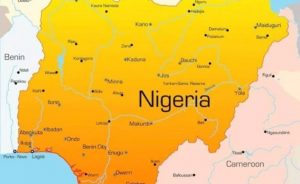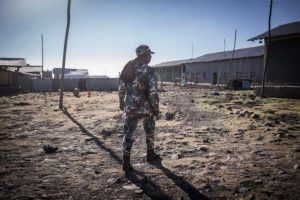Liberia: Non-Permanent Seat, Permanent Illusions – Liberia’s UN Security Council Victory and the Shadows of Neocolonial Hypocrisy

Established in 1945, the United Nations (UN) remains the world’s most comprehensive multilateral institution, designed to promote peace, security, and international cooperation in the aftermath of World War II. At the heart of its peacekeeping mandate sits the UN Security Council (UNSC)–the most powerful organ of the UN system–tasked with making decisions on conflict, sanctions, peacekeeping missions, and authorizations of force. While the Council comprises 15 members, five (China, France, Russia, the UK, and the US) are permanent and wield veto power, while ten non-permanent members are elected on a rotating basis for two-year terms by the General Assembly to represent geographic regions.
On 3rd June 2025, Liberia was elected by the General Assembly as a non-permanent member of the Security Council–marking a significant milestone for the small West African country and placing it alongside Algeria and Somalia, the other African states presently on the Council. Historically, nations such as Nigeria, Ghana, Egypt, and South Africa have used this position to assert regional influence and advocate for Africa-focused resolutions. The seat offers Liberia a ceremonial platform, diplomatic visibility, and participation in international security dialogues–at least in theory.
Historical Relevance: Liberia’s Long March in International Diplomacy
Liberia’s UN membership since the organization’s inception in 1945 reflects its role as one of the founding members and Africa’s oldest republic. It played pivotal roles in advocating for the decolonization of Africa, championing the independence of Israel in 1948, and supporting the early post-war international legal architecture. Liberia’s regional diplomacy has also included its involvement in ECOWAS peacekeeping missions during the civil wars in Sierra Leone and Guinea-Bissau. However, these contributions were often eclipsed by internal instability and elite dependence on Western patronage.
Liberia’s Moment: Symbolism vs Substance
In the current moment, this UNSC seat can be interpreted as both a symbolic reward for Liberia’s democratic transition and a diplomatic lever–potentially enhancing its global voice on peace and security matters. However, this elevation comes amid internal decay: rampant corruption, increasing poverty, weak institutions, and a fragile rule of law under President Joseph Boakai’s administration.
This contrast is stark. Liberia’s domestic reality clashes with the image of a stable global actor. Despite the celebratory rhetoric, the seat does not equate to influence unless Liberia can speak with clarity, consistency, and credibility–something its undefined foreign policy framework and subservient historical ties to Washington may not permit.
The Neo-Colonial Structure of a Global Security Club
The UN Security Council itself is a deeply flawed body, reflecting the geopolitical dynamics of 1945, not 2025. The permanent member structure enshrines Western and imperial dominance, leaving non-permanent members as ceremonial fillers with no veto power. Liberia’s election, therefore, while noteworthy, reinforces a global structure where real decision-making lies elsewhere–a neocolonial echo chamber where smaller nations are seen but not heard.
This is especially critical in today’s shifting geopolitical landscape. The rise of anti-colonial sentiment, the emergence of the Alliance of Sahel States (Mali, Burkina Faso, Niger), and the rhetorical force of Pan-Africanist realignment pose sharp questions about Liberia’s loyalties. A country historically moderate in its Pan-Africanism and reliant on U.S. strategic interests risks becoming diplomatically irrelevant–stuck between new African assertiveness and old Western dependency.
A New Seat, But Old Baggage
Liberia’s celebration of this UNSC seat must also be understood within the context of America’s recent punitive stance toward African countries–notably fellow non-permanent members. The United States under Donald Trump has imposed visa restrictions on Sierra Leone and Somalia, citing national security and migration violations. The case of Sierra Leone is particularly revealing: Trump’s administration alleges that 15.43% of Sierra Leone’s total population overstayed tourist visas, and an astounding 35.83% overstayed student and exchange visas (F, M, and J categories).
These developments cast a shadow over what it means to be a non-permanent UNSC member. Visibility without sovereignty means little. And Liberia, with its documented weak border control, diplomatic fragility, and absence of a consistent migration policy, could be next in line if Washington’s political winds shift unfavorably.
Three Strategic Recommendations for Liberia
While the UNSC seat brings prestige, it must be used wisely. Liberia cannot afford to rest on ceremonial laurels. Here are three strategic recommendations to help Liberia leverage this moment:
1. Define and Articulate a National Foreign Policy Framework
Liberia must clearly outline its foreign policy priorities, with emphasis on peacebuilding, multilateralism, and Pan-African solidarity. This includes establishing foreign policy advisory councils and strategic think tanks to shape Liberia’s voice at the UN.
2. Strengthen Domestic Governance and the Rule of Law
Without good governance at home, no amount of diplomatic visibility can translate to respect abroad. Liberia must address corruption, judicial independence, and public accountability to align its domestic image with its global ambitions.
3. Diversify Diplomatic Partnerships
Liberia should broaden its international engagements beyond U.S. dependency, including non-aligned coalitions, South-South partnerships, and continental integration platforms such as the African Union and ECOWAS.
Cautionary Word to Liberians
While it is okay to celebrate Liberia’s election to the Security Council, expectations must be managed. The Boakai administration is already over-amplifying this position to distract from growing economic hardship, misgovernance, and mass disillusionment. Without a radical shift in governance and diplomacy, this seat may amount to little more than a political smokescreen. The lives of ordinary Liberians will not change simply because their country now occupies a ceremonial chair in New York. Only deliberate leadership and visionary policy can convert this symbolic gain into lasting substance.
By FrontPageAfrica.



